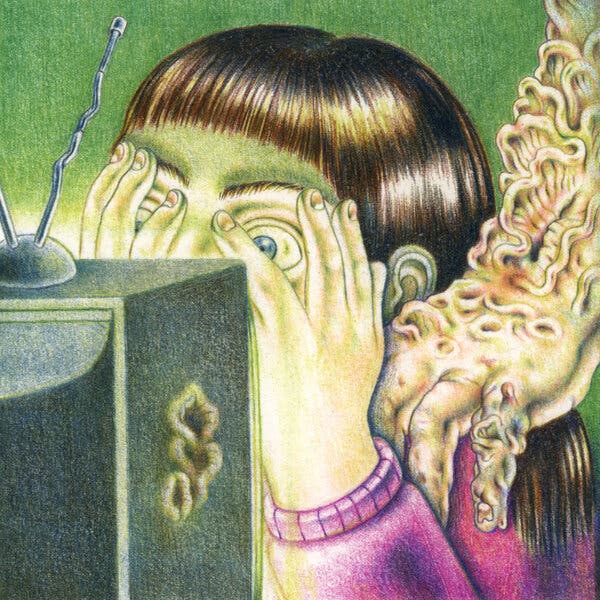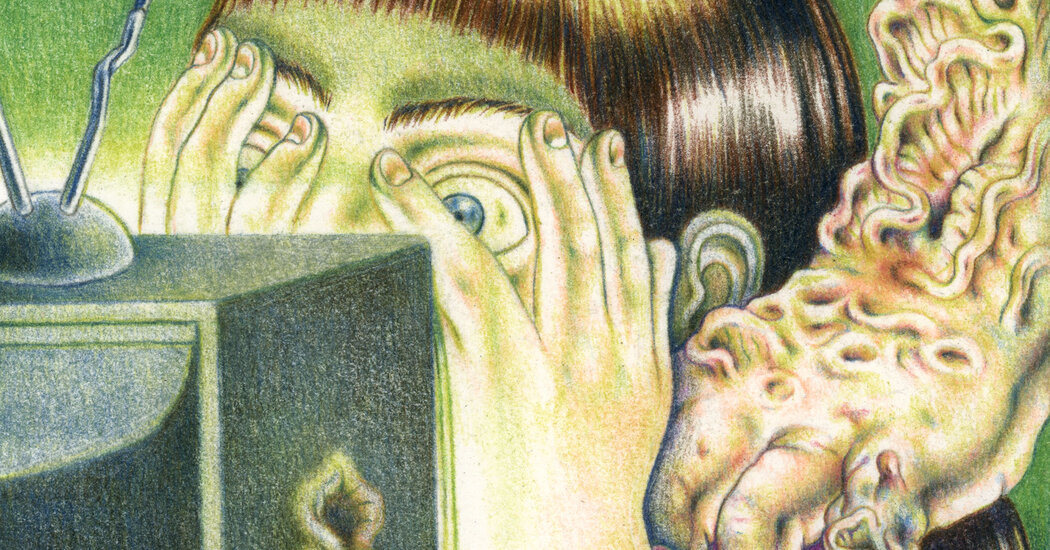## Is a post-apocalyptic world the key to mental wellness? One New York Times writer thinks so.
Forget meditation apps and overpriced yoga retreats. In a world increasingly defined by chaos and uncertainty, one unlikely source has become a haven for a New York Times writer seeking solace: the brutal, heartbreaking world of “The Last of Us.”

The Appeal of the Unknown

There’s a peculiar comfort to be found in the unknown, especially when it manifests in the form of fictional disasters. Perhaps it’s the catharsis of vicariously experiencing the unimaginable, or the sense of control we feel when facing these manufactured threats within a safe, controlled environment. Whatever the reason, the enduring popularity of zombie and apocalypse narratives speaks to a deep-seated human fascination with these scenarios.
Gamestanza recognizes this appeal. Our community thrives on the thrill of exploration, the challenge of survival, and the opportunity to test our wits against impossible odds. Whether it’s navigating a post-apocalyptic wasteland in “Fallout 4” or facing hordes of the undead in “Resident Evil Village,” these games offer a unique escape, allowing us to confront our fears and emerge stronger.

Survival and Resilience
“The Last of Us” masterfully explores the complexities of human nature under extreme duress. It’s not just about fighting off infected monsters; it’s about the choices we make, the bonds we forge, and the resilience of the human spirit in the face of unimaginable loss. The show paints a nuanced picture of survival, showcasing both the best and worst of humanity.
Gamestanza users are no strangers to these themes. We’ve seen countless discussions and debates about the moral dilemmas faced by characters in survival games like “This War of Mine” and “The Walking Dead.” These games often force us to confront uncomfortable truths about ourselves and the choices we might make in life-or-death situations.
By engaging with these narratives, we can gain a deeper understanding of our own values and the strength we possess within.

Gamestanza’s Take: The Popularity of Zombie and Apocalypse Games
The enduring popularity of zombie and apocalypse games can be attributed to several factors:
- Escapism: These games offer a thrilling escape from the mundane, allowing players to immerse themselves in a world of danger and excitement.
- Survival Instinct: The need to survive and overcome challenges taps into our primal instincts, providing a sense of accomplishment and satisfaction.
- Social Commentary: Zombie and apocalypse narratives often serve as metaphors for societal anxieties, exploring themes of collapse, societal breakdown, and the fragility of civilization.
- Customization and Agency: Many of these games allow players to customize their characters, weapons, and strategies, giving them a sense of agency and control in a chaotic world.
Gamestanza recognizes the power of these games to entertain, engage, and provoke thought. We strive to provide a platform where players can connect, share their experiences, and explore the multifaceted world of zombie and apocalypse gaming.
From Screen to Couch: The Blurred Lines Between Reality and Fiction
The line between reality and fiction becomes increasingly blurred when we engage with immersive storytelling experiences like “The Last of Us.” Video game adaptations, in particular, have a unique ability to transport us into fictional worlds, making the narratives feel all the more real.
Playing with Danger
Gamestanza understands that exposure to violent or distressing content can have an impact on our perceptions and emotional states. While “The Last of Us” is a work of fiction, its realistic portrayal of violence and the human cost of survival can be unsettling for some viewers. It’s important to be mindful of our own emotional well-being and to take breaks when needed.
The Impact of Immersive Storytelling
“The Last of Us” excels at creating a sense of emotional connection with its characters and their struggles. The show’s masterful storytelling, combined with powerful performances from its cast, draws us into the world and compels us to care about what happens to these individuals.
Gamestanza users frequently discuss the emotional impact of video games and their ability to evoke a wide range of feelings. From the exhilaration of victory to the crushing weight of loss, games have the power to transport us on emotional journeys that resonate long after the game is over.
Finding Solace in Shared Experience
The popularity of “The Last of Us” speaks to our innate need for connection and shared experience. Discussing the show with friends, family, or online communities allows us to process our emotions, analyze the narrative, and connect with others who share our passion.
Gamestanza provides a platform for users to engage in meaningful discussions about the games they love. Whether it’s dissecting plot twists, debating character motivations, or sharing fan theories, our community fosters a sense of belonging and shared understanding.
Conclusion
Conclusion: Finding Sanity in a World of Chaos
In “The Zombie Apocalypse of ‘The Last of Us’ Has Kept Me Sane” from The New York Times, we delve into the unorthodox yet fascinating world of gaming therapy. The article highlights how the post-apocalyptic universe of ‘The Last of Us’ has provided solace and a sense of control for its players in a world plagued by uncertainty and chaos. By analyzing the game’s themes of survival, resilience, and human connection, the author reveals how it has served as a coping mechanism for dealing with anxiety, depression, and feelings of powerlessness in real life.
The significance of this topic lies in its bold exploration of the intersection between gaming and mental health. The article sheds light on the often-overlooked benefits of gaming as a therapeutic outlet, challenging the common perception that it’s a frivolous or isolating activity. By acknowledging the emotional resonance of ‘The Last of Us’, the author humanizes the gaming experience and underscores its potential to provide comfort, escapism, and a sense of community.
As we move forward, it’s essential to recognize the growing importance of gaming as a tool for emotional well-being. As the lines between reality and virtual reality continue to blur, we must be willing to confront the complexities of gaming’s impact on our mental health. In doing so, we may uncover new avenues for healing, connection, and growth – and discover that, in a world of chaos, the zombie apocalypse of ‘The Last of Us’ is just the beginning of a more profound journey towards self-discovery and understanding.